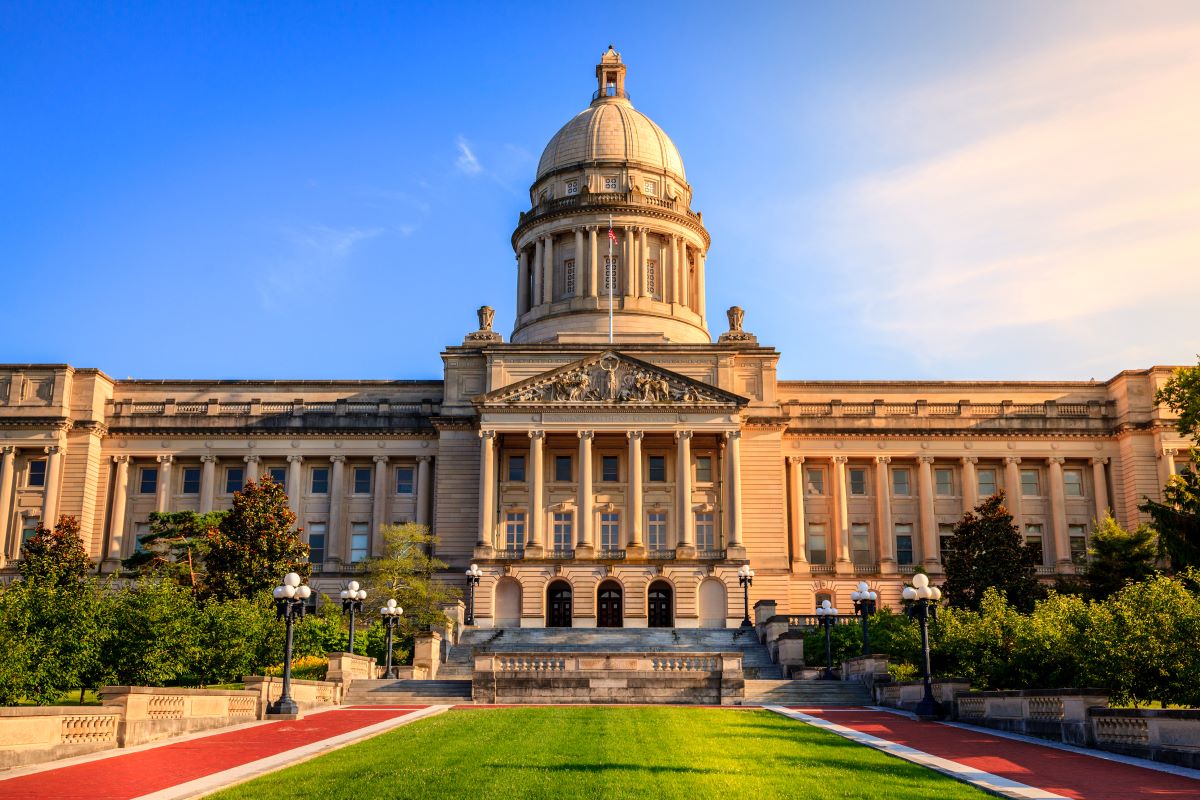Republicans in Louisville, Kentucky, have introduced a bill that could significantly increase criminal penalties against people experiencing homelessness and subject them to increased incidents of vigilante violence.
The 68-page bill, known as the Safer Kentucky Act, includes provisions that ban street camping and gives private citizens the right to use force to evict homeless people when they believe that a person is attempting to “dispossess him or her of his or her Kentdwelling otherwise than under a claim of right to its possession.” The anti-homeless legislation also prohibits camping on roads or overpasses and prohibits the state from using tax dollars to fund Housing First initiatives.
Advocates slammed the bill as a dangerous way to address homelessness.
The Louisville Coalition for the Homeless said it is not built on the truths that service providers know about homelessness.
“It fails to address the root causes of violence and poverty, instead relying on disproven approaches, including the criminalization of homelessness and limiting local governments’ abilities to spend federal dollars on evidence-based housing solutions,” the nonprofit organization said in a press release.
Some Kentucky state lawmakers have also spoken out against the bill. State Representative Kenturah Herron, a Louisville Democrat, said the bill won’t help the state address homelessness.
“If we really wanted to deal with the homeless and houseless situation, we would put money into housing,” Herron told Spectrum News. “We would create and build more affordable housing. Then also, we would put more money into those nonprofit organizations who are serving these individuals.”
Republicans have defended the bill as the best way to address public safety concerns in the state. State Rep. Jason Nemes, a Republican from Louisville, told Spectrum News that the bill is about “putting away” people who commit crimes.
“We’re not going to be compassionate to these people,” Nemes said.
The efforts to further criminalize homelessness in Kentucky, like many other state legislatures, is happening at a time when the rising cost of living is threatening the housing stability for millions of low-income earning Americans.
More than 35,000 households in Kentucky reported being either “very” or “somewhat likely” to face eviction within the next two months. That total is down from around 48,000 households that reported similar living conditions a year ago.
One possible reason for that decline is that many of the households that reported facing housing instability last year have already fallen into homelessness. In April 2023, the Louisville Coalition for the Homeless said the number of unsheltered residents in the metro area increased to 581 from 283 just a year ago, representing a climb of 139%. Service providers also noted an increase in encampment cleanups, which they say has made it harder to do their job.
“It makes it harder, it makes it more expensive for people like us and our outreach team to connect people with services, and it keeps people in crisis,” Rashann Martin, who directs the local Saint John’s Center, told local news station WHAS11.
Meanwhile, housing costs in Louisville continue to creep upward, putting more pressure on low-income earners. The median home price in the city has increased by roughly 11% since March 2020, when the coronavirus pandemic began, according to Redfin. Rents have also marched upward by roughly 30% over the last decade.
Instead of criminalizing homelessness, advocates said lawmakers should address the funding shortages many nonprofit service providers face.
“We would recommend the expansion of indoor 24/7 shelter, low-barrier shelter options that would get people off the streets and into an indoor safe space. That, of course, requires funding,” Catherine McGreeney, a spokesperson for the Louisville Coalition for the Homeless, told FOX56.
How You Can Help Fight Anti-Homeless Legislation
In the face of a rising tide of legislation veiled under deceptive titles like the “Safer Kentucky Act,” we are engaged in a critical battle against misinformation and the criminalization of homelessness. Across the nation, these laws are quietly advancing through legislative committees, propelled by secret votes, corporate funding, out-of-state lobbyists, and conservative think tanks like the Cicero Institute.
Your support is our most potent weapon against this orchestrated effort. The consequences of these laws are dire:
- The withholding of funds for essential homeless services.
- The perpetuation of a heart-wrenching homeless-to-prison pipeline.
- The redirection of funds meant for affordable housing.
- Penalties for governments refusing to enforce these harmful policies.
At this pivotal moment, we must make the truth louder than ever. Tell your representatives you support revamping how your city addresses homelessness. Handcuffs do not get anyone closer to stable housing. Instead, we must focus on compassionate solutions, the first step to ending homelessness.












